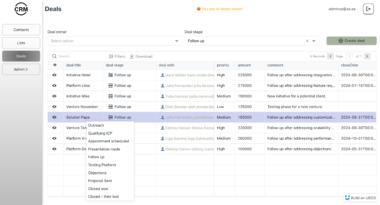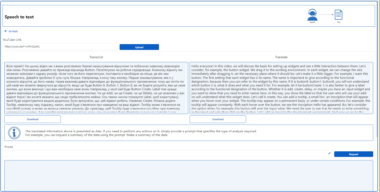Frequently Asked Questions about the MCP EVM Signer
Q: What is the MCP EVM Signer?
A: The MCP EVM Signer is a Model Context Protocol (MCP) server designed to securely manage Ethereum private keys and deploy smart contracts using Infura. It enables AI agents to interact with EVM-compatible blockchains.
Q: What is MCP?
A: MCP stands for Model Context Protocol. It’s an open protocol that standardizes how applications provide context to Large Language Models (LLMs). In this case, it allows AI agents to interact with blockchain data and functionalities.
Q: How does the MCP EVM Signer enhance security?
A: It enhances security by storing private keys locally on your machine, providing the option to encrypt keys with a password, and exposing functionality only through the MCP protocol. Always review transactions before approving them.
Q: What are the prerequisites for using the MCP EVM Signer?
A: The prerequisites include Node.js v16 or higher, an Infura account with an API key, and potentially Claude for Desktop if you want to integrate with that AI assistant.
Q: Can I use the MCP EVM Signer without Claude for Desktop?
A: Yes, you can use the MCP EVM Signer independently. However, integrating with Claude for Desktop provides a more natural language interface for interacting with the blockchain.
Q: Which blockchain networks are supported?
A: The MCP EVM Signer supports EVM-compatible blockchains. The example configuration uses Sepolia, but you can configure it to use other networks.
Q: How do I deploy a smart contract using the MCP EVM Signer?
A: You can deploy a smart contract by using the deploy-contract tool. This requires providing the ABI and bytecode of the compiled contract.
Q: How do I check the balance of an Ethereum address?
A: You can check the balance of an Ethereum address using the check-balance tool, providing the address as an argument.
Q: Where are the private keys stored?
A: Private keys are stored locally on your machine in the keys/ directory.
Q: Are the private keys encrypted?
A: Yes, you have the option to encrypt the private keys with a password by setting ENCRYPT_KEYS to true in the .env file.
Q: What is Infura and why is it needed?
A: Infura is a service that provides API access to the Ethereum network. It’s needed because it eliminates the requirement to run your own Ethereum node, simplifying deployment and reducing infrastructure costs.
Q: How do I contribute to the MCP EVM Signer project?
A: To contribute, fork the repository on GitHub, create a feature branch, make your changes, and submit a pull request.
Q: What license is the MCP EVM Signer released under?
A: This project is licensed under the MIT License.
Q: Can I use the MCP EVM Signer with the UBOS platform?
A: Yes, the MCP EVM Signer is designed to integrate into the UBOS ecosystem, allowing you to leverage UBOS for orchestrating AI Agents and connecting them with your enterprise data and the blockchain.
Q: Where can I find more detailed documentation?
A: You can find more detailed documentation in the Usage Guide and Examples within the project repository.
EVM Signer
Project Details
- zhangzhongnan928/mcp-evm-signer
- Last Updated: 3/4/2025
Recomended MCP Servers
An MCP server that runs AI-driven venture capitalist agents (Fred Wilson, Peter Thiel, etc.), whose thinking is continuously...
Stock market data provider for Claude Desktop using MCP

Model Context Protocol Servers


MCP VMI Testing

A Model Context Protocol (MCP) server that connects to Strava API, providing tools to access Strava data through...
A Model Context Protocol server that provides read-only access to MySQL databases. This server enables LLMs to inspect...
MCP Database Server is a new MCP Server which helps connect with Sqlite, SqlServer and Posgresql Databases

MCP 任务管理工具
A model context protocol to play Geofs which is a free online flight simulator
Claude can perform Web Search | Exa with MCP (Model Context Protocol)
 From vibe coding to vibe deployment. UBOS MCP turns ideas into infra with one message.
From vibe coding to vibe deployment. UBOS MCP turns ideas into infra with one message.





